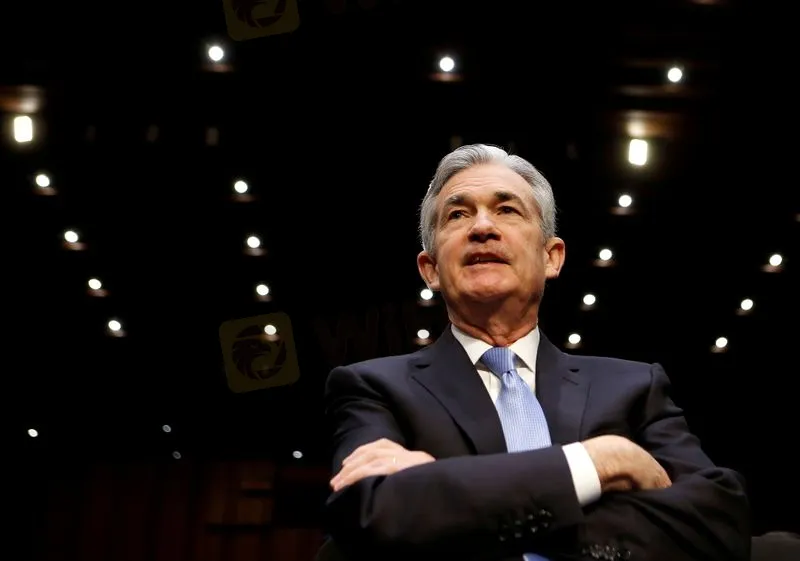简体中文
繁體中文
English
Pусский
日本語
ภาษาไทย
Tiếng Việt
Bahasa Indonesia
Español
हिन्दी
Filippiiniläinen
Français
Deutsch
Português
Türkçe
한국어
العربية
Fed's Powell sees inflation lingering, risks from COVID
Abstract:But the recent rise in COVID-19 cases and the emergence of the new Omicron variant pose downside risks to employment and economic activity and increased uncertainty for inflation.

U.S. Federal Reserve Chair Jerome Powell on Monday said he continues to expect inflation to recede over the next year as supply and demand come into better balance, but warned that the new strain of COVID-19 muddies the outlook, and prices could continue to rise for longer than earlier thought.
“It is difficult to predict the persistence and effects of supply constraints, but it now appears that factors pushing inflation upward will linger well into next year,” Powell said in testimony prepared for delivery Tuesday at the U.S. Senate Banking Committee, and released Monday by the Fed.
The economy continues to strengthen, and the labor market to improve, pushing up wages, he said.
But the recent rise in COVID-19 cases and the emergence of the new Omicron variant “pose downside risks to employment and economic activity and increased uncertainty for inflation,” he said, noting that health-related concerns could “reduce people's willingness to work in person, which would slow progress in the labor market and intensify supply-chain disruptions.”
The Fed this month began reducing its support for the economy by gradually decreasing its asset purchases at a pace that would end them by next June.
But with inflation registering more than double the Fed's 2% target, Fed officials have increasingly said they are open to potentially speeding up the taper to clear the way for earlier interest rate hikes if needed.
Powell did not mention the taper timeline in his prepared remarks, though he did say the labor market has “ground to cover” before reaching full employment, one of the conditions the Fed has set before it will consider raising interest rates from their current near-zero levels.
The Fed, Powell promised, “is committed to our price-stability goal” and will use its tools both to support the economy and the labor market and to “prevent higher inflation from becoming entrenched.”
For more Forex news, please download WikiFX- the Global Forex Regulatory Inquiry APP.
Disclaimer:
The views in this article only represent the author's personal views, and do not constitute investment advice on this platform. This platform does not guarantee the accuracy, completeness and timeliness of the information in the article, and will not be liable for any loss caused by the use of or reliance on the information in the article.
Read more

FED meeting minutes strongly hint at a rate cut in September; US dollar index falls to new low this year!
The U.S. Bureau of Labor Statistics revised down the employment growth in the year ending in March by 818,000, an average monthly decrease of about 68,000, the largest downward revision since 2009. The substantial downward revision of employment data re-emphasized the severity and necessity of the U.S. employment problem, paving the way for a rate hike in September. Bearish for the U.S. dollar.

What new signals does the Federal Reserve have? FED Governor Michelle Bowman reiterates the risk of inflation!
Fed Governor Bowman: There are upside risks to inflation, the labor market continues to strengthen, and a cautious attitude will be maintained at the September meeting. Boston Fed President Collins: If the data is as expected, it would be appropriate to start easing policy "soon". Inflationary pressure will slow down the pace of U.S. interest rate cuts, which will be bullish for the dollar.

GEMFOREX - weekly analysis
The week ahead: Traders on the backfoot ahead of a quiet week

Twin Scam Alert: Broker Capitals is a New Domain of Finex Stock
This week, the Italy financial regulator CONSOB issued a warning against an unlicensed broker named Broker Capitals. When we clicked on Broker Capitals' website, its logo, trade name, and design seemed familiar to us.
WikiFX Broker
Latest News
Will Gold Prices Continue to Rise Due to Trump’s Tariffs?
Why the Federal Reserve Is So Important
Boerse Stuttgart Digital Secures EU-Wide MiCAR Crypto License
SEC Fines Vanguard $106 Million Over Misleading TRF Tax Disclosures
Swiss Population Strongly Opposes Abolition of Cash, Philoro Study Reveals
Oil Prices Continue to Rise Due to Sanctions
Currency Calculator






